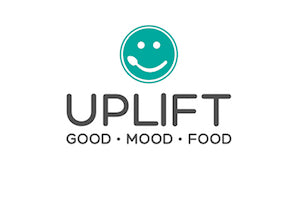Anxiety, Depression and the Microbiome: A role for Psychobiotics!
Hey Uplifters,
Hope everyone is staying safe and healthy! Today we are sharing with you guys another interesting journal article from the American Society for Experimental Neurotherapeutics on the bidirectional communication between the gut and the brain.
There has been interesting evidence that supports the role of the microbiome in regulating interactions between the gut and the brain, as well as gut peptides to be a great significance in the regulation of gut-brain signalling.
The emergence of the gut-brain axis in a variety of brain disorders, such as anxiety and depression is important in understanding the contribution of the bidirectional interactions between peptide hormones released from the gut and intestinal bacteria.

Above shows the numerous communications of the microbiota-gut-brain axis, which includes the gut microbiota signalling the brain to control physiological processes. This includes the release of gut peptides which can activate receptors of the immune system and terminals in the gut. Gut peptides can play a vital role in signalling the alterations of the gut microbiota neuropsychiatric conditions.

Above shows a diagram of the gut distribution in the gastrointestinal tract. Gut peptides are released from different subgroups of enteroendocrine cells. Due to the position in the GI tract, it is possible that the peptides may be influenced by changes in the microbiota and directly or indirectly send signals to the brain.

There's evidence to suggest that depression and anxiety can alter the composition and stability of the gut microbiota, as well as alternating the intestinal barrier. This could then lead to a proinflammatory response due to the alteration of the gut microbiota. Evidence also suggests that LPS produced by gut bacteria could increase immune responses in depressed patients.
Similarly, irritable bowel syndrome, is a disease also linked to changes in the immune system and there are links between patients with IBS and their gut microbiota composition.
The manipulation of the gut microbiota may be a great tool to decode the physiological role of the gut-brain axis in psychiatric disorders.

There is strong evidence to suggest the importance of the gut microbiome in normal brain development as well as in stress-related disorders. Amongst the multiple pathways of communication by which the gut is able to signal the brain, the endocrine system plays an important role in monitoring the neural and immune system. Peptides released by specialized cells in the gut also help to contribute to gut-brain communication.
The use of psychobiotics as a gut microbiota strategy for treatment for depression and anxiety is also feasible, and can have a positive impact on your health. The rising interest in this area of research will also lead to greater insight of the microbiome-gut-brain communication and provide a better understanding of how to treat mood disorders.
You guys can try our Daily Uplifter prebiotic powder from our website here, or try our recently launched Gut Happy Cookies here, which are both packed with prebiotics, probiotics and loads of other gut health benefits!
In good gut health,
Team Uplifters!
